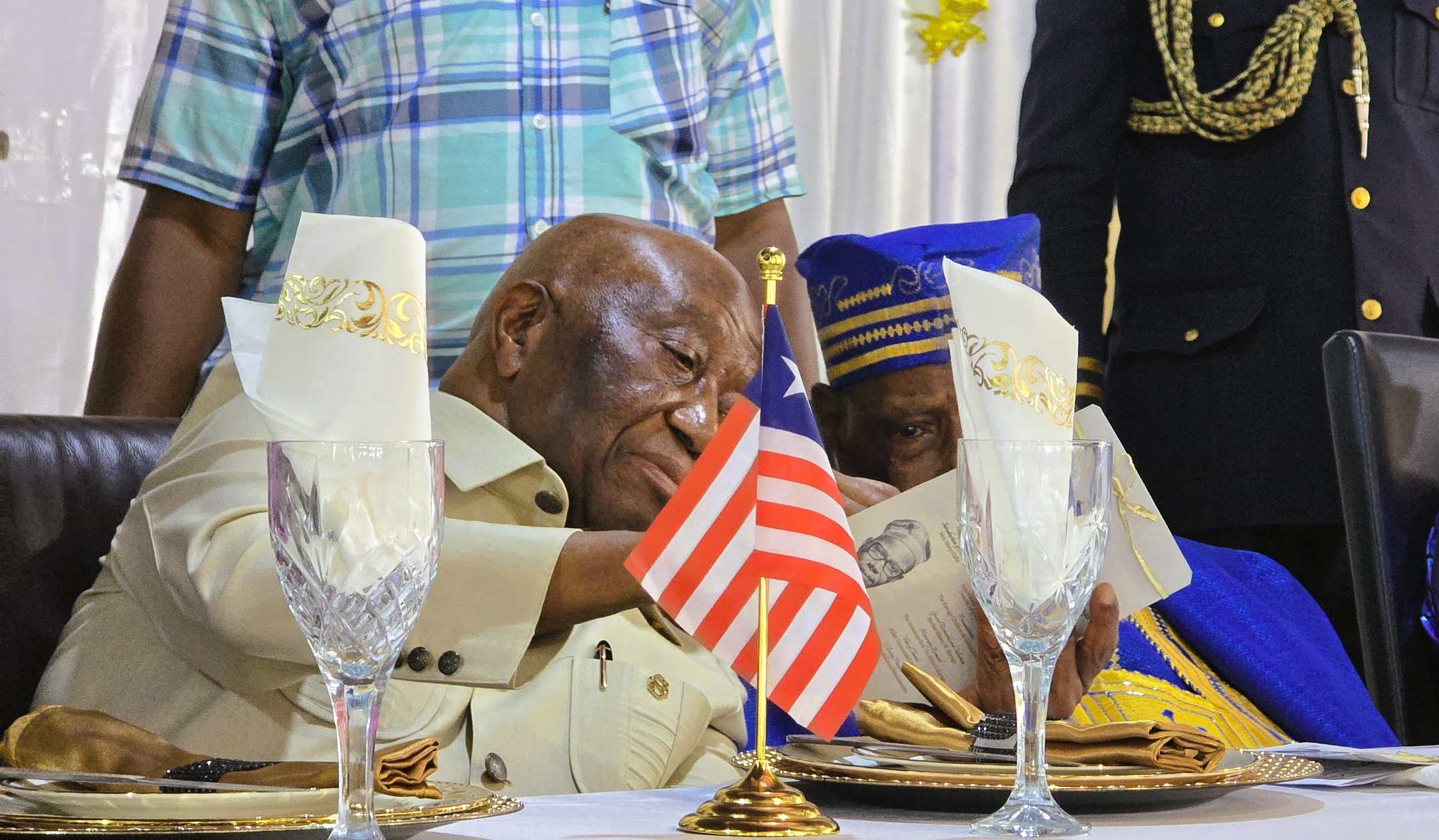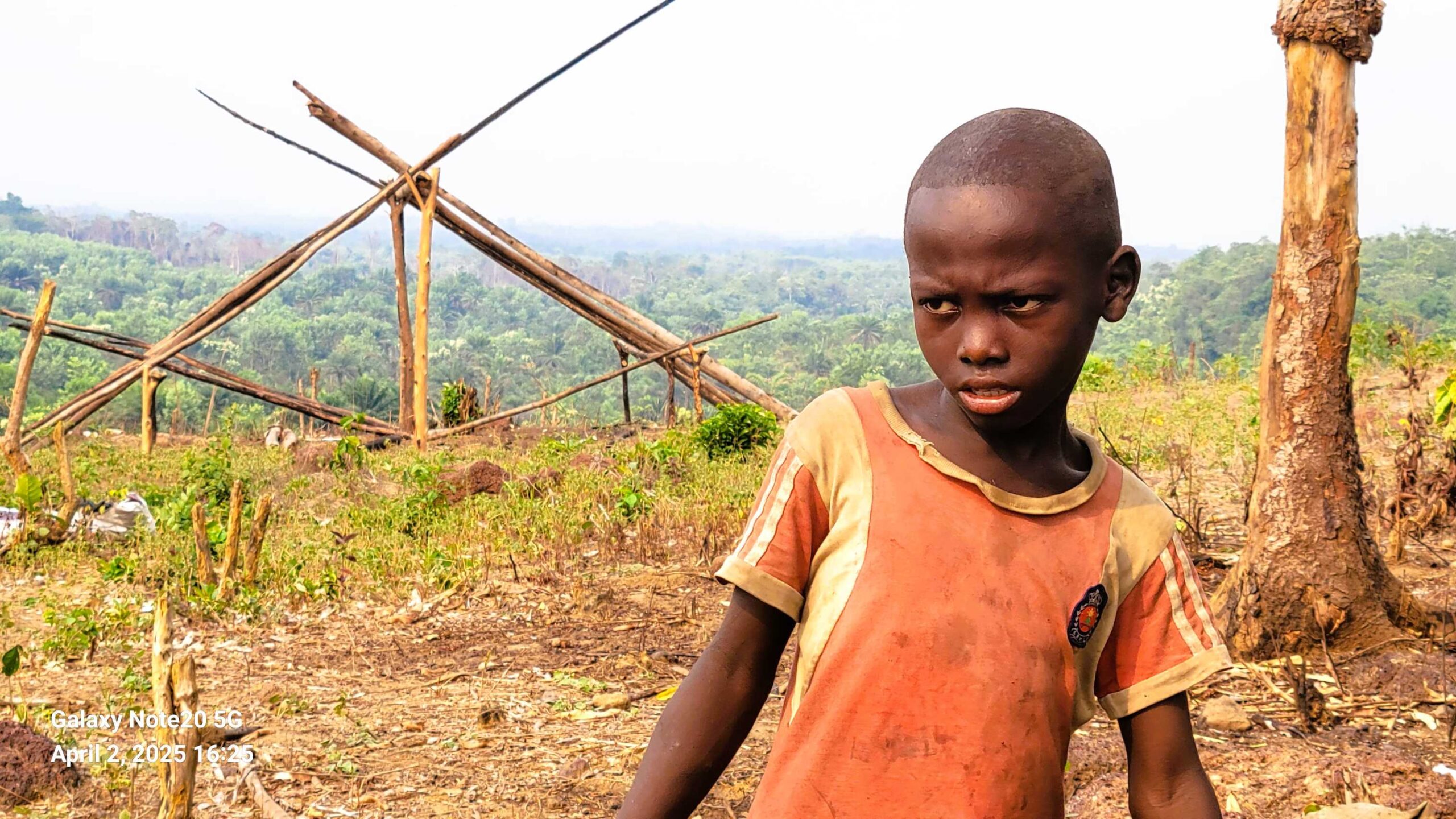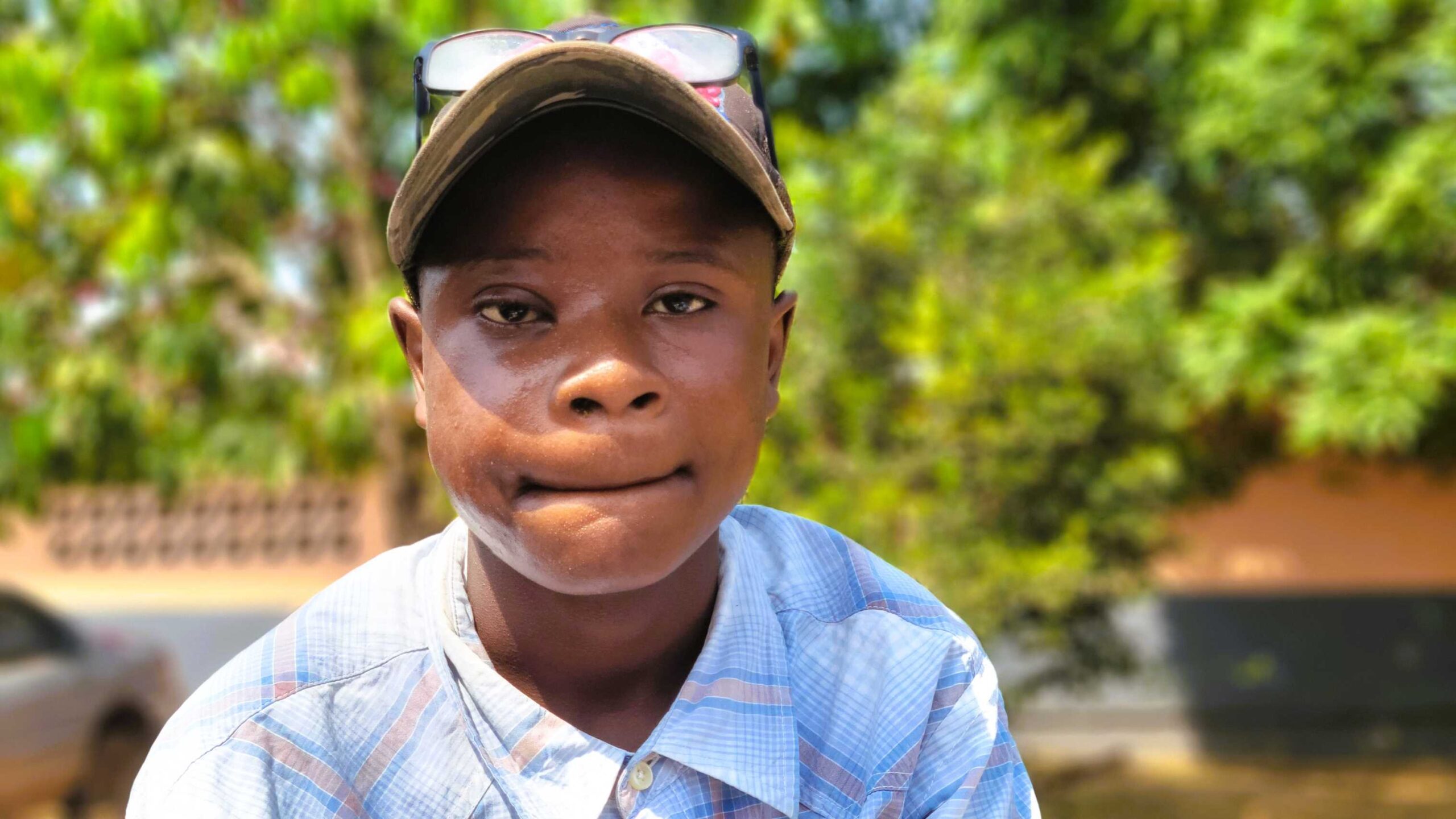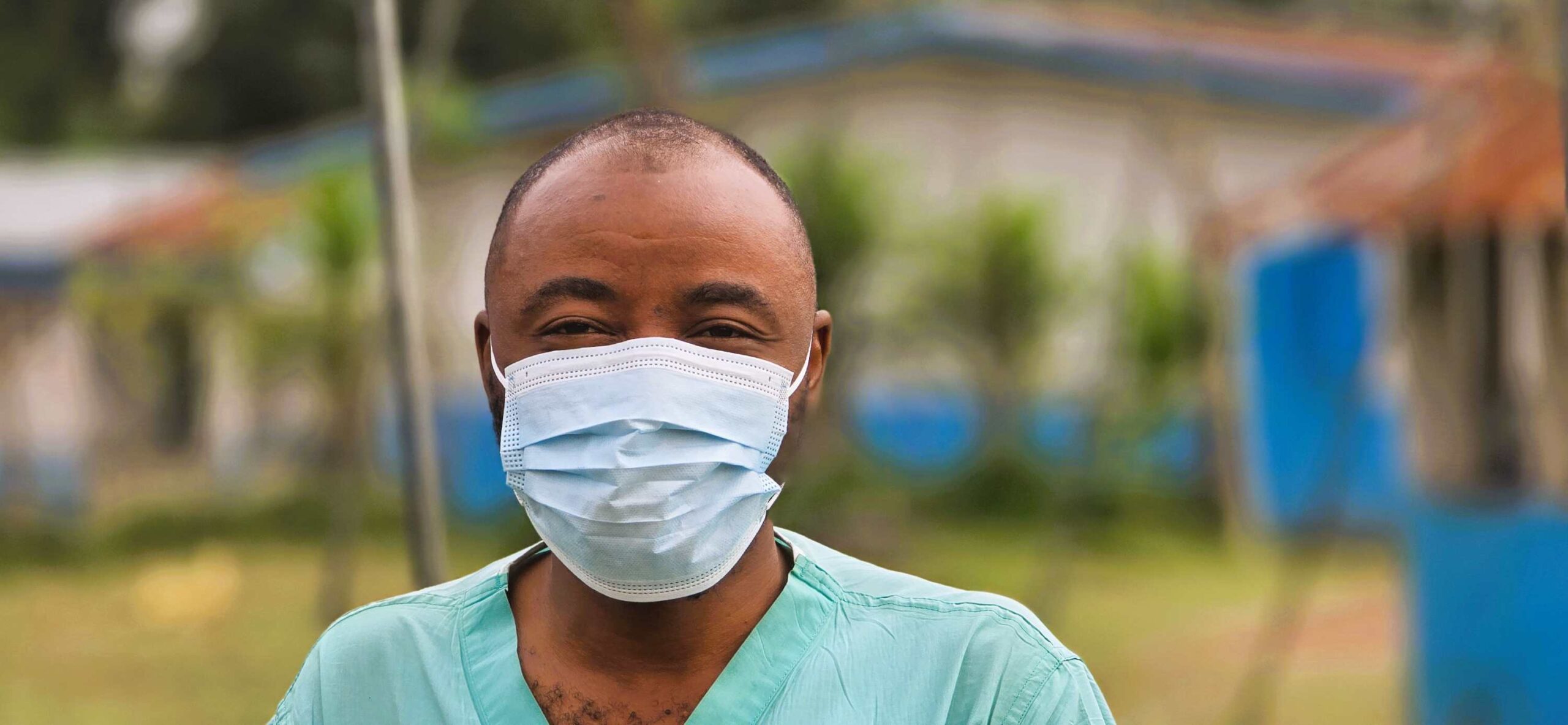Liberia and the lurking deadly Monkeypox virus!
…Two Lofa patients declared healed by health officials
A Special News Feature/Pictorial by James Kokulo Fasuekoi|Editor-Publisher
When our Global Ekklesia’s news crew hit the Liberian border town, Yeala, recently, as it headed into the Republic of Guinea, locals poured out in numbers and warmly greeted us with handshakes and hugs, and nothing seemed eerie except murmurings about one suspected Mpox victim found in nearby Guinea.
But as our team rolled back into the town on motorbike, Wednesday, September 11, the atmosphere in this ancient town had changed almost entirely; there was longer handshake nor hugging as before, and the town seemed locked into a paranoid state as many tried to stay distances away from others to avoid contracting the lurking Mpox virus.

And there was a reason why-a series of medical tests performed on a two-year-old boy whose parents live in Yeala, turned out to be Mpox-positive and Junior Zaza, being a minor, was placed under quarantine together with his mother at the Yeala Health Clinic.
It began September 3, according to IOC Varney Konneh, who runs this bordertown clinic that also serves a huge number of patients from nearby Guinea. Little Zaza’s mom, pretty much in her teens, had walked into the clinic to report rashes on the lad’s feverish skin after nights of restlessness.

IOC Varney Konneh, suspicious that Zaza’s symptoms seemed identical to those of Mpox, decided to run some tests, and when the results seemed to confirm his fear, he says, he then quickly dispatched his findings to the nearby regional medical center, Zorzor Curran Lutheran Hospital, and called in a medical team so they could go in and help probe further.
As a medical team from Curran (the largest hospital in the region) moved into Yeala, to conduct additional examinations, Konneh’s lab work was being shared and examined by other clinicians. It didn’t take long when fear came true; Little Junior Zaza was infected with the deadly Mpox virus, a disease declared by the WHO two weeks earlier as an emergency health risk worldwide.

This finding prompted Lofa County health officials to immediately move both Zaza and his mother into what OIC Konnah called, a “holding area” in order to prevent the disease from further spreading.
Yeala, roughly some 6-8 km northeast of Zorzor City, is the site of the gigantic ancient town wall, believed to be more than two-three centuries old. The mysterious wall, built of clay and mud by Yeala ancestors, once protected citizens from the surges of war, during the age of tribal war.

According to OIC Konneh, just about the time the Yeala Mpox case was confirmed positive, a second child, also a boy, in the Zorzor District town of Borkeza, was found with the disease, raising the total to two in Lofa County alone at the time.
And like Yeala, health workers also moved him into a “holding area” for further observations and treatment. This prompted health officials in the area to dispatch a surveillance team, lead by Marcus Youdee, to search out for “active” cases plus any sign of rashes and report them.
Similarly, Guinea’s border-crossing-points into Liberia, according to Youdee, in an exclusive Global Ekklesia interview Sept. 10, at Curran Hospital, were “strengthened,” meaning, the borders’ crossing-points were “tightened” by local security guards and medical personnel, checking for signs of Mpox virus among travelers.

This move came at the heels of persistent rumors which circulated earlier in border towns that a male Guinea, suspected of carrying the Mpox virus, had been planning on crossing into the Republic of Liberia during the second week of September, although no clear reason about the man’s alleged action was given.
According to Wikipedia, Mpox is an infectious viral disease which can attack both humans and animals. Its symptoms include swollen lymph nodes, fever and rashes that lead to blisters on the victim’s skin, and is said to at times turn fatal, resulting even in complications and death!

Since last August and September, many countries have reported new cases of the virus. In Africa itself, according to WHO reports, the Central African nation of Congo, remains the highest country hit hard by the virus with 1,838 confirmed cases, 1,095 suspected cases, and 35 deaths since August 23, 2024.
Liberia, on the other hand, so far confirmed at least eight cases, during the months of August and September; these excluded new figures involving 3 cases of “clade-2a strain” announced last week by the head of Liberia’s National Public Health Institute, Dr. Dougbeh Chris Nyan.
For much of the past weeks Global Ekklesia sought medical experts from the Liberian Health Ministry for a briefing regarding the status of the two patients in Zorzor District but our attempts turned out to be a failure.

Then on September 28, Ekklesia got some heartwarming news; our medical contact, Dr. Tamba Cembianor of the JNB Foundation-Liberia, had managed to reach Montserrado County Surveillance Officer, Dr. Samuel Blayou-he confirmed the two Lofa “Mpox patients” had already recovered fully.
Dr. Blayou didn’t however state if both victims and their mothers had been released from being under quarantine, having stayed more than the required 21 days in seclusion since early September.
While the Mpox situation in Liberia appears to be under control, the recent experiences, especially in rural Liberia towns like Yeala, Borkeza and Zorzor, may yet serve as a learning curve for this war-ravaged nation which previously battled two deadly diseases-Ebola (2014), and Covid-19 (2020).

For instance, during the second week in September, uncertainty hung in the air in the Zorzor area after news regarding the presence of the virus there. For a week, locals walloped in great fear, not knowing what to expect or do in terms of preventive care, amid lack of mass awareness campaigns by local “NGOs” and health workers.
And while a handful of medical staff at the Yeala Clinic took precautionary measures, including wearing masks and maintaining a hand washing bucket at the clinic, after confirming Zaza positive, the atmosphere seemed the opposite at certain health centers in the region.

At Curran Lutheran Hospital in Zorzor, for example, staff on duty appeared unmoved by what was happening in nearby Yeala and Borkeza. Our news crew noticed sanitary items, especially hand washing stations, weren’t functional. In fact, a rusty hand-wash-bucket from Covid-19 era, sitting next to the hospital’s entrance, was out of order.
Restrooms were also found to be inaccessible to sick patients and visitors as nurses redirected them to “go into the banana-bush” in the September rain whenever they expressed desire of wanting to urinate or ease themselves.
Global Ekklesia didn’t speak to nurses or doctors about the lack of sanitary items at the medical center, or why they had to redirect their patients and visitors to use nearby coffee farms and banana bushes in the north of the hospital to attend nature.

An anonymous medical source in the USA, when approached by Ekklesia regarding the Mpox breakout he alleged that Liberia still has no “proactive” measures put in place, geared toward combating such outbreaks, saying, medical authorities would need to do more work in order to put disease preventive measures into place in time before they strike.
So far, said the source, there hasn’t been any rapid response mechanism set up by health authorities to avert any future catastrophe. What even compounds this situation, said the source, is lack of “coordination” between clinicians regarding “information gathering” on disease outbreaks.
Another key concern raised by our source is what he refers to as the “high level of incompetence” being allegedly displayed among those entrusted with tasks cited in the following paragraphs earlier-and that, he says, “leaves us in the hands of God!”

Curran Lutheran Hospital in Zorzor, is well known for making history-at least, of some sort. The deadly AIDs virus, for instance, was first discovered there in a ‘female patient’ sometime 1982.
Also, Dr. Esther Bacon from the US state of Iowa, one of the earliest medical missionaries to Liberia who arrived 1941, and started work at Curran Lutheran Hospital, died of Lassa fever in 1972 (31 years later) while trying to save a Lassa fever patient (University of Iowa Libraries).
Esther Bacon, well hailed and remembered among the Lormas of Gezima whom she served, was subsequently interred in Curran Hospital’s main compound near Keluwu Road, as she had requested prior to her death.
In yet another episode, in 1986, this writer together with another reporter of Daily Star Newspaper published a lead story on Curran Hospital, titled: “Deadly Diseases Hit Lofa…Several Reported Dead!” This followed a bout of Lassa fever that had ravaged Zorzor District, with the suspected carrier said to have entered Liberia via neighboring Guinea.
Banner photograph shows IOC Varney Konneh at Yeala Community Clinic Sept. 11, 2024.
EDITOR’S NOTE: ALL PICTURES COPYRIGHTED BY GLOBAL EKKLESIA











